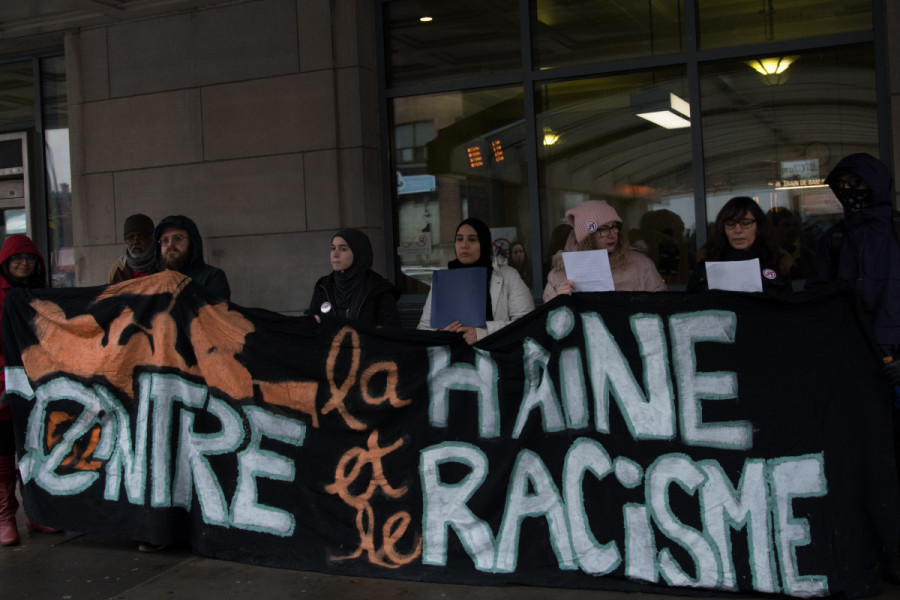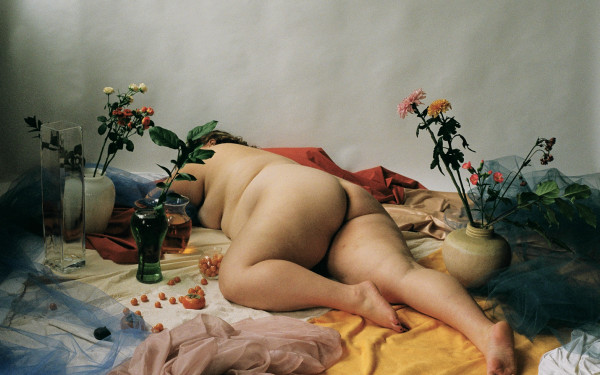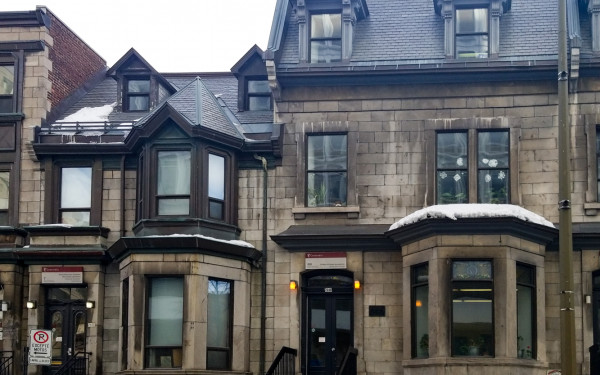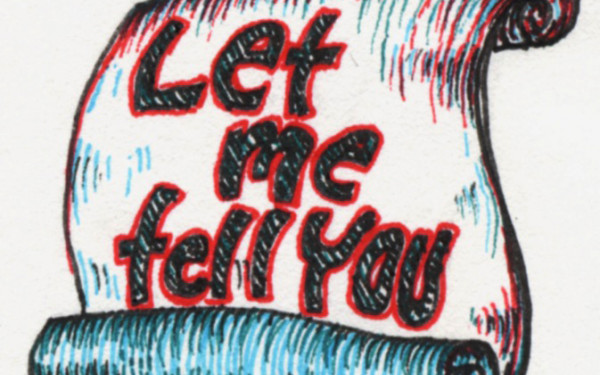Rain Doesn’t Deter Montreal Anti-Racism Protest
Hundreds At Annual Demonstration in Parc-Extension
People may hate the rain, but some hate racism more.
A couple hundred people gathered at Parc station in the pouring rain on Sunday for the annual march against racism, hate, and violence.
This year, protesters targeted the Coalition Avenir Québec, saying they foster an intolerant environment in the province. They cited a recent Quebec Commission of Human Rights report showing hate crimes are underreported in the province and have spiked since the party came into power.
Demonstrators also say the passing of the secularism law formerly known as Bill 21—which prohibits workers in the public sphere and teachers from wearing religious symbols—has fanned the flames of xenophobia and Islamophobia in Quebec. They said the law disproportionately affects Muslim women.
The protesters marched around Parc-Extension—the poorest and most diverse neighbourhood in the city. That area is home to many immigrants, temporary workers, and undocumented migrants as well.

Marwa Khanafer, who works in the human rights field, said she feels hatred every time she leaves the house. She said she gets strange looks and has been the victim of harassment. But, her friends who are teachers feel it even more as they can’t work because of their hijabs, she added.
“The hostile environment was here before the arrival of François Legault, but once Bill 21 came out, we as Quebéc Canadians feel the hatred every time we leave the house,” she said. “It can be at work or even in the metro, really it’s every day and I feel it more and more.”
Others denounced the immigration reforms, formerly known as Bill 9, passed by the CAQ under closure as “unethical.” The reform reduced immigration in the province by 20 per cent. It also slashed about 16,000 applications from hopeful immigrants, telling them to reapply in the reformed system.
Victoria Gay-Chauvin, an urban planning master’s student at Université du Québec à Montréal focusing on racial segregation in Montreal, was unable to attend the march last year. She said she made a point to attend this time as she noticed racism “got worse and worse” in the past year.
She said the fact that the CAQ invoked closure—effectively ending all discussions in the National Assembly—to pass Bill 21 and Bill 9 into law shows Legault “knows he doesn’t have the support of all the population to do that and he did it no matter what.”
We are all human beings, we all look alike whether we wear a veil, kippah, or whatever but in the end we are all human and we all deserve respect.
—Marwa Khanafer
“For me it really shows his values and it shows the values of people around Montreal in the regions,” she said. “The CAQ is extremely dangerous and for Bloc Québécois to start their campaign by supporting the CAQ automatically, it sends really strong signals.”
Since 2016, there has been a surge in far-right activity and of racial discourse in the media. But, Fred Burill of Solidarity Across Borders said, racism is nothing new in Canada.
He pointed to the occupation of unceded Indigenous land, residential schools, and the migrant detention centre in Laval as symptoms of systemic racism.
“We fight against all deportations, we fight for the immediate regularization of all who have irregular immigration status,” he said. “We fight to make Montreal a city without borders where all can live without fear and with access to all necessary services to live with dignity.”
Participants in the demonstration approached the march with different perspectives—some focusing on Indigenous issues, others on Black Lives Matter and the conflict in Haiti—but the underlying message was the same.
“We are all human beings, we all look alike whether we wear a veil, kippah, or whatever but in the end we are all human and we all deserve respect,” said Khanafer.
“Stop thinking of just the differences because difference makes the beauty of Québec and Canada.”
With files from Alexandre Denis.








